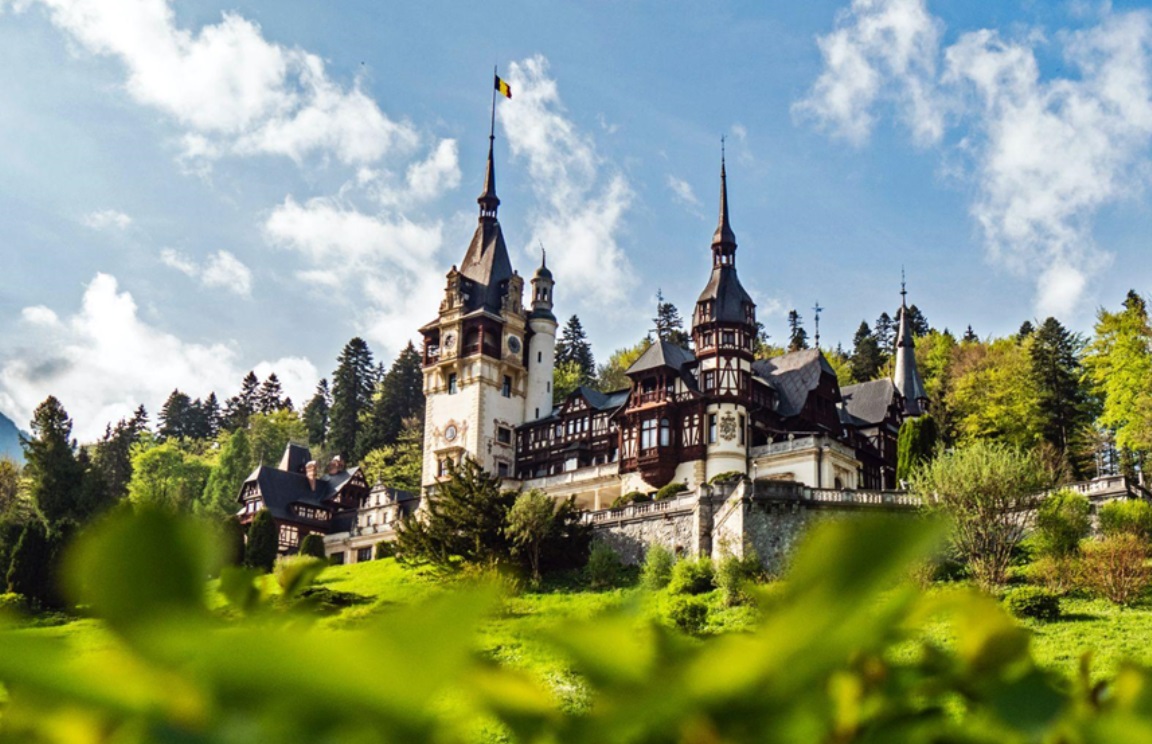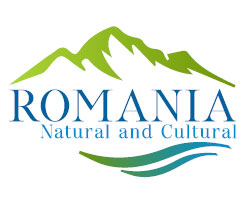
Romania, often hailed as a hidden gem in Eastern Europe, is increasingly becoming a sought-after destination for international students. With its rich cultural heritage, diverse landscapes, and a growing reputation for academic excellence, Romania presents an alluring blend of educational and adventurous opportunities.
Why Choose Romania?
A rich tradition of academic excellence marks Romania's educational landscape. Top universities like the University of Bucharest and Babes-Bolyai University in Cluj-Napoca are well-known for their rigorous curricula and specialized programs. Particularly notable are engineering, medicine, and the arts, where Romanian institutions have made significant contributions. The essay writing help service can be a valuable resource for students seeking assistance in these challenging programs.
The language of instruction in most Romanian universities has traditionally been Romanian, but with the increasing influx of international students, many programs are now offered in English. This shift caters to the global student community and enhances the learning experience by fostering a more diverse academic environment.
Cultural and Historical Richness
Romania offers a unique blend of cultural and historical experiences, making it an ideal study-abroad destination. The country's rich history is reflected in its architecture, from medieval castles in Transylvania to the grandeur of communist-era buildings. Students can immerse themselves in this cultural tapestry through various festivals, museums, and historical sites.
Language learning is another integral part of the cultural immersion. While Romanian is the official language, many locals, especially the younger generation, are proficient in English. Nevertheless, learning Romanian can be a rewarding experience, offering more profound insights into the local culture and traditions.
Preparing for Your Journey
Application and Admission Process
The application process for Romanian universities involves several key steps:
- Choose a Program: Research and select a program that aligns with your academic interests and career goals.
- Prepare Your Documents: Gather necessary documents such as academic transcripts, a statement of purpose, and letters of recommendation. If the program is in English, proof of English proficiency (like TOEFL or IELTS scores) may be required.
- Submit Your Application: Applications are typically submitted directly to the university or through a centralized platform. Pay attention to application deadlines, which vary depending on the institution and program.
- Wait for Acceptance: After submitting your application, the next step is to wait for the admission decision. This process can take several weeks or even months.
Visa and Legal Requirements
Obtaining a student visa is a crucial step in your journey to studying in Romania:
- Acceptance Letter: Once you receive an acceptance letter from a Romanian university, you can start the visa application process.
- Visa Application: Apply for a long-stay student visa at the nearest Romanian embassy or consulate. The application typically requires an acceptance letter, proof of financial means, a criminal record certificate, and a medical insurance policy.
- Submission and Processing: Submit your visa application and wait for processing, which can take up to 45 days.
- Arrival in Romania: Upon arrival, you may need to register with the local authorities and apply for a residence permit.
Legal Formalities for International Students
International students in Romania are required to adhere to specific legal formalities:
Residence Permit: Students must apply for a temporary residence permit after arriving in Romania. This permit needs to be renewed annually.
Health Insurance: International students must have health insurance coverage during their stay.
Bank Account: Opening a local bank account can be beneficial for managing finances and receiving any necessary student loans or stipends.
Accommodation and Living
Housing Options
Students studying in Romania can choose between on-campus dormitories and off-campus housing. On-campus dorms are usually more affordable and offer the convenience of living near academic facilities and fellow students. Off-campus options include renting apartments or sharing flats, which might be slightly more expensive but offer more privacy and a taste of independent living.
Tips for Finding and Securing Student Accommodation
- Start Early: Begin your housing search well in advance of your arrival.
- Utilize University Resources: Many universities provide assistance or resources for finding accommodation.
- Consider Location and Connectivity: Look for housing in areas with good public transport links to the university.
- Budget Appropriately: Ensure the rent aligns with your budget, considering additional costs like utilities and internet.
- Safety First: Prioritize safe neighborhoods and visit the property in person or via a virtual tour before deciding.
Cost of Living
Romania is known for its affordable cost of living compared to many Western European countries. Typical monthly expenses for a student might include:
- Rent: €150-€350, depending on location and accommodation type.
- Food and Groceries: €100-€200.
- Transport: €20-€50.
- Miscellaneous (including leisure activities): €50-€100.
Budgeting Tips for Students
- Track Your Spending: Keep an eye on your expenses to avoid overspending.
- Cook at Home: Save money by preparing meals at home.
- Take Advantage of Student Discounts: Utilize discounts for transportation, cultural events, and dining.
- Plan for Unforeseen Expenses: Set aside a small fund for emergencies.
Navigating Academic Life
University Culture and Classroom Dynamics
Romanian universities often combine a traditional approach to education with modern teaching methodologies. Classes include lectures, seminars, and laboratory work, depending on the field of study. Professors generally expect a high level of independence from students, who are encouraged to engage in self-directed learning.
For those needing additional support with academic writing, seeking help from a professional research paper writing service can be beneficial. International students might find Romanian teaching styles more formal and theoretical than they’re used to. Active participation in classes, while valued, might not be as emphasized as in some Western educational systems.
Support Services for International Students
Many Romanian universities offer support services tailored to the needs of international students. These services can include:
- Language Courses: To help non-native speakers improve their Romanian language skills.
- Counseling Services: Offering support for academic and personal challenges.
- Career Services: Assisting with internships and job opportunities post-graduation.
Involvement in Student Organizations and Activities
- Clubs and Societies: Joining student organizations is a great way to meet new people and integrate into the university community.
- Cultural and Social Events: Participating in these events can enhance the study abroad experience, providing opportunities to learn about Romanian culture and traditions.
Exploring Romania
Travel and Discovery
Romania's diverse regions offer many experiences, from the Carpathian Mountains' rugged landscapes to the Black Sea's sandy beaches. Traveling is relatively easy and affordable, with extensive train and bus networks connecting major cities and towns.
Must-Visit Places and Hidden Gems
- Transylvania: Known for its medieval towns like Brasov and Sighisoara and the famous Bran Castle, often associated with the Dracula legend.
- Bucharest: The country's vibrant capital, known for its unique architecture and bustling nightlife.
- The Danube Delta: A UNESCO World Heritage site perfect for nature enthusiasts.
- Hidden Gems: Explore the painted monasteries of Bucovina, the wooden churches of Maramures, or the thermal spas in Herculane.
Cultural Integration and Social Life
Engaging in cultural exchange programs, language exchange meetups, and attending local events are great ways to immerse yourself in Romanian culture and forge lasting friendships.
Universities in Romania offer various clubs and societies ranging from sports to arts, which can be an excellent way for international students to integrate and share their culture. Participating in local events, festivals, and volunteering activities also provides a deeper understanding of Romanian society and helps build a social network.
Professional Opportunities
Internships and Work Experiences
Many Romanian universities have strong ties with local and international businesses, offering students a range of internship opportunities. These internships can be a valuable way to gain practical experience in your field of study. Additionally, part-time jobs, such as teaching English or working in tourism, can be a good source of extra income.
International students need to understand the legalities of working in Romania. It typically involves checking the terms of your student visa and seeking any necessary work permits. Universities often guide these legal aspects through their international offices.
Networking and Career Development
Universities in Romania often provide career services, including career counseling, resume workshops, and job fairs, which are invaluable resources for students looking to start their professional journey.
Engaging with professors, joining professional student organizations, and attending industry seminars can be excellent ways to build a professional network. Many universities also facilitate connections with alums, providing a platform for career advice and networking.
Conclusion
Studying abroad in Romania offers more than just an academic degree; it's a personal and professional growth journey. The experiences, skills, and memories gained in Romania will be invaluable assets for your future.


